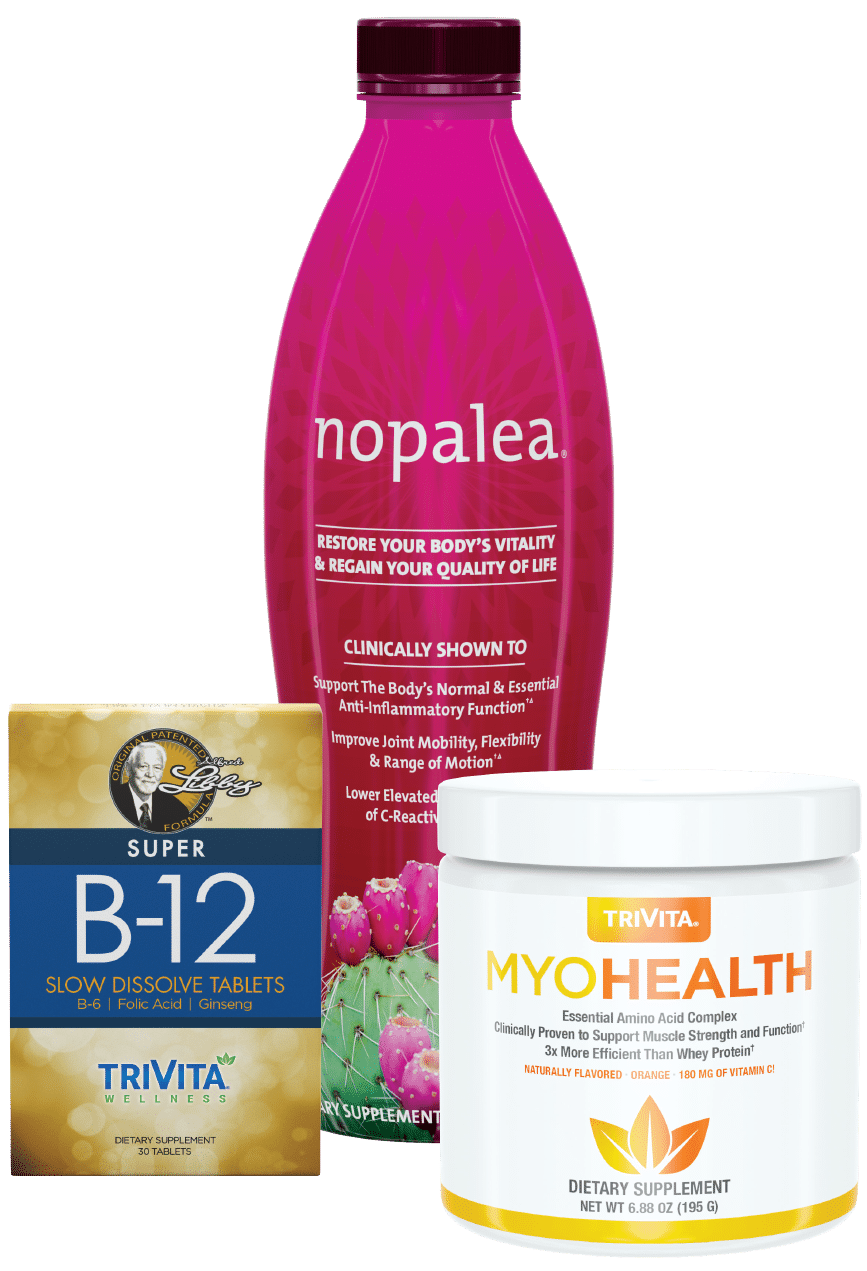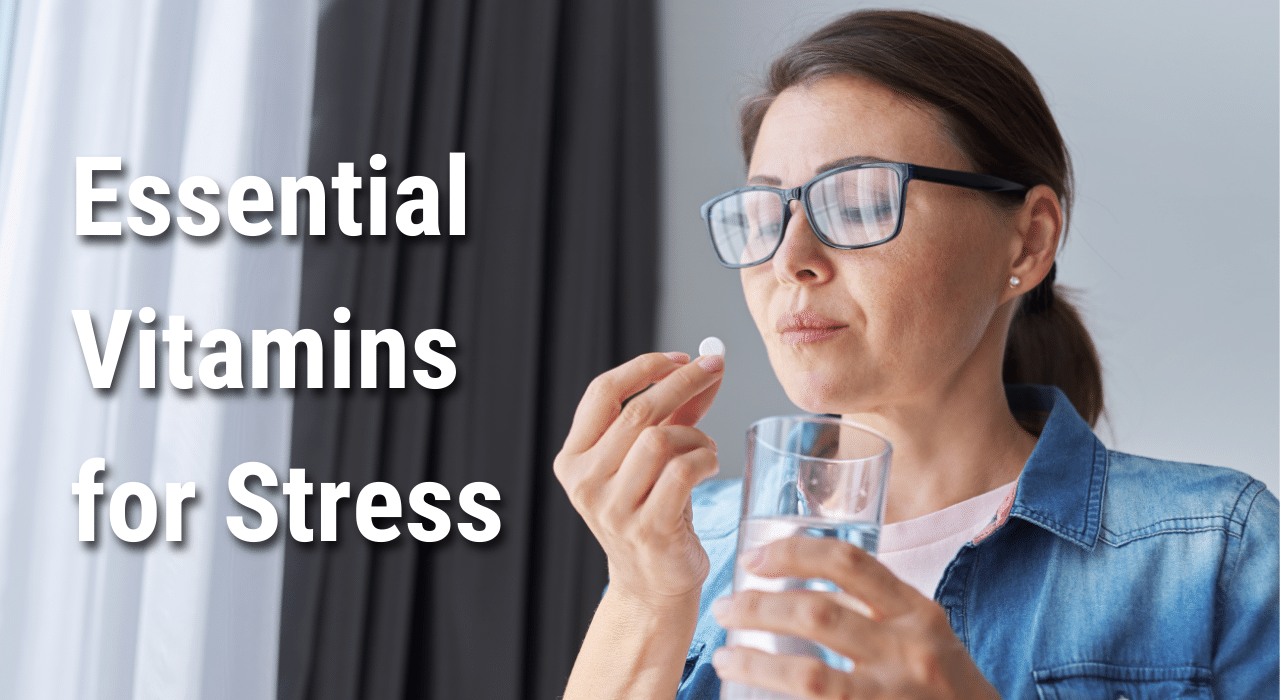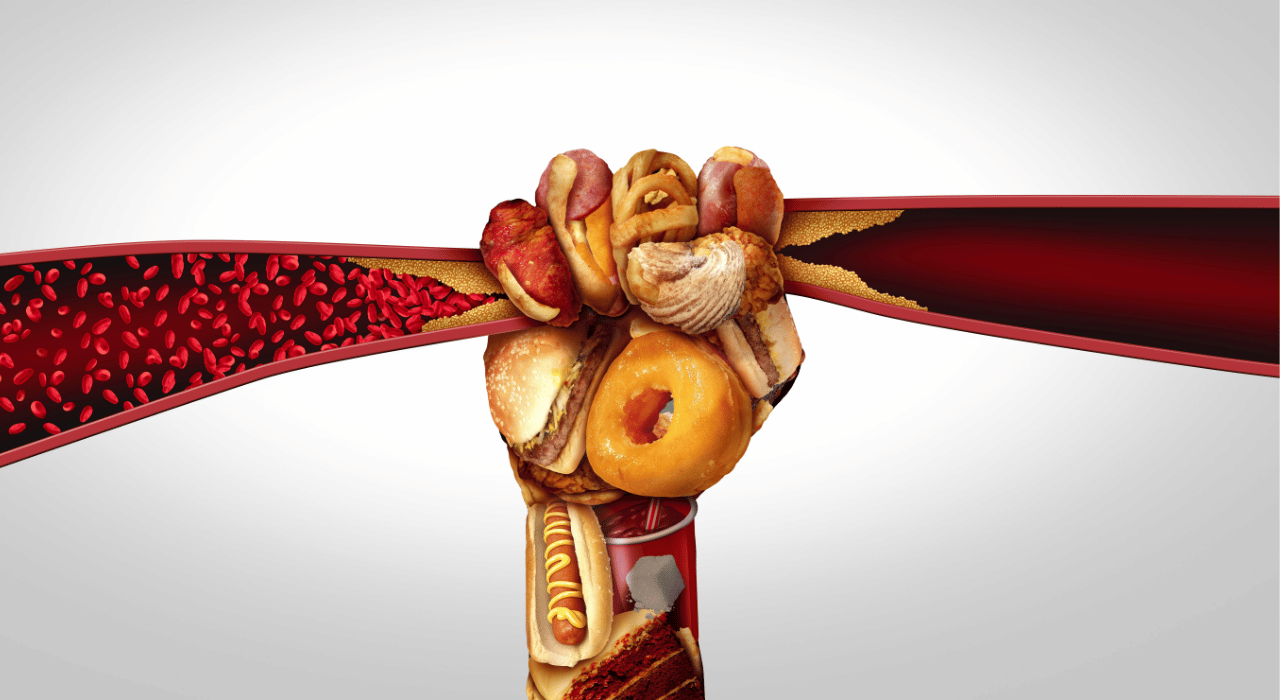By Paul Bernitt, DHH
Director of Wellness Services, TriVita
Dear Friends,
I want to take a moment to speak from my heart. Chronic inflammation affects so many of you, and I know the toll it takes—not just physically but emotionally and spiritually, too. You’re not alone if you feel overwhelmed by pain, fatigue, or stress. But there is hope. You can take steps toward healing with understanding and small, intentional changes. Let’s walk this journey together.
In this newsletter, I’ll share the top causes of chronic inflammation, the problems it creates, and holistic ways to restore balance to your body. I’ll also highlight the role of simple lifestyle modifications that can help you reduce chronic inflammation and its symptoms.
The Top 5 Causes of Chronic Inflammation
- Poor Diet
What we eat directly impacts inflammation. Diets high in processed foods, refined sugars, and unhealthy fats can trigger the immune system to stay in constant “fight” mode. This can lead to chronic inflammation over time. A study published in Nature Medicine (2018) found that high sugar intake disrupts the gut microbiome, leading to systemic inflammation and insulin resistance. (1) - Lack of Exercise
Our bodies are designed to move. Without regular activity, stiffness and inflammation can set in. A sedentary lifestyle often leads to weight gain, which increases stress on joints and worsens inflammation. Research from the Journal of Clinical Endocrinology & Metabolism (2015) found that moderate exercise reduces markers of inflammation, including CRP (C-reactive protein), in overweight adults. (2) - Stress
Chronic stress can feel like carrying an invisible weight. It keeps your body in a constant state of high alert, releasing stress hormones that fuel inflammation. Over time, this can weaken your immune system and hinder healing. A study in Psychoneuroendocrinology (2016) linked chronic stress with elevated inflammatory cytokines, which increase the risk of conditions like heart disease and depression. (3) - Environmental Toxins
Exposure to environmental pollutants, such as fine particulate matter (PM2.5), has been linked to increased systemic inflammation, which can contribute to various health issues. A study published in Environmental Health Perspectives in 2016 found that higher levels of PM2.5 were associated with elevated markers of systemic inflammation, including C-reactive protein (CRP) and interleukin-6 (IL-6), in a cohort of elderly individuals. (4) - Lack of Sleep
Sleep is your body’s repair mode. Without enough rest, your immune system becomes overactive, leading to unnecessary inflammation. Sleep deprivation can also worsen conditions like arthritis and cardiovascular disease. A study showed that sleep-deprived individuals had significantly higher levels of inflammatory markers compared to those with adequate rest. (5)
The Problems Chronic Inflammation Can Create
When inflammation lingers, it can disrupt nearly every part of your body:
- Joint Pain and Stiffness: Chronic inflammation contributes to cartilage breakdown, leading to pain and reduced mobility. A study showed inflammation leads to cartilage degradation and joint pain. (6)
- Heart Disease: Inflammation in blood vessels can cause narrowing, increasing the risk of heart attack or stroke. Research in the Journal of Cardiovascular Computed Tomography explores how chronic inflammatory diseases are linked to coronary heart disease, emphasizing the role of systemic inflammation in cardiovascular events. (7)
- Brain Fog and Mood Issues: Inflammation affects brain function, potentially leading to depression, anxiety, and cognitive difficulties. A review in Frontiers in Immunology examines the impact of stress-induced inflammation on coronary artery disease, noting the connection between inflammatory cytokines and mood disorders. (8)
- Digestive Problems: Conditions like irritable bowel syndrome (IBS) and leaky gut are often associated with inflammation. An article in BMC Medicine discusses the role of immunity and inflammation in atherosclerosis and cardiovascular disease, which can also relate to inflammatory processes in the gut. (9)
- Weakened Immune System: Chronic inflammation can overburden the immune system, making individuals more susceptible to illnesses. A study in Frontiers in Physiology reviews the role of inflammation in heart failure, highlighting how persistent inflammation impairs immune function.(10)
Turning Chronic Inflammation into Healthy Inflammation
Here’s the truth: Chronic inflammation doesn’t have to define your life. Science and holistic wellness show us powerful ways to calm the body and encourage healing.
- Adopt an Anti-Inflammatory Diet
Emphasizing whole, unprocessed foods like leafy greens, berries, nuts, seeds, fatty fish, and olive oil can reduce inflammation.
- Scientific Insight: A study in The American Journal of Clinical Nutrition (2016) confirmed that the Mediterranean diet significantly reduces inflammatory markers like CRP. (11)
- Get Regular Movement
Engaging in daily activities such as walking, yoga, or swimming improves circulation and reduces inflammation. Movement also releases endorphins, natural pain relievers.
- Scientific Insight: A 2020 review in Frontiers in Physiology highlighted that low-to-moderate exercise reduces inflammation in people with arthritis. (12)
- Practice Stress Management
Incorporating practices like meditation, prayer, deep breathing, or journaling can lower stress levels and strengthen the immune system.
- Scientific Insight: A randomized trial showed mindfulness practice reduced inflammation markers. (13)
- Detox Your Environment
Minimize exposure to toxins by using natural cleaning products, stop using deodorant with aluminum in it, avoid processed foods, and add air-purifying plants to your home.
- Scientific Insight: A study showed that reducing household pollutants decreased oxidative stress and inflammation. (14)
- Prioritize Quality Sleep
Aim for 7-9 hours of uninterrupted sleep each night. A consistent bedtime routine helps signal to your body that it’s time to rest and repair.
- Scientific Insight: Research shows the link between adequate sleep and lower inflammatory cytokines. (15
How Nopalea Can Support Your Journey
Nopalea, made from the prickly pear ruby red optuntia ficus, is rich in betalains, natural antioxidants that combat oxidative stress and inflammation.
- Reduces CRP Levels: Lowers markers of inflammation in the body. (16)
- Improves Range of Motion: Soothes joint inflammation, enhancing flexibility. (16)
- Less Reliance on Pain Medication: By addressing the root causes of pain, many users find they need less medication.(16)
- Natural Pain Relief: Eases discomfort to enjoy your favorite activities. (16)
Friend, you don’t have to feel stuck in the cycle of inflammation. Let’s take these steps together—starting with small changes that lead to big transformations. I believe in your ability to heal, and simple lifestyle improvements including Nopalea can help you in your wellness journey. I’m here to support you every step of the way.

Paul Bernitt, DHH
Director of Wellness Services
I am passionate about my work as the TriVita Wellness Director and find great joy in guiding people on their wellness journey. Together, we can experience greater physical, emotional, and spiritual wellness!
References
- https://www.nature.com/articles/s41392-024-01746-y.pdf
- https://academic.oup.com/jcem/article/105/8/e2941/5850995
- https://www.frontiersin.org/journals/psychiatry/articles/10.3389/fpsyt.2023.1130989/full
- https://ehjournal.biomedcentral.com/articles/10.1186/s12940-020-0568-1
- https://pmc.ncbi.nlm.nih.gov/articles/PMC8602722/#:~:text=Sleep%20deprivation%20may%20result%20in,as%20inflammation%2Drelated%20chronic%20diseases.
- https://pmc.ncbi.nlm.nih.gov/articles/PMC5500215/
- https://www.journalofcardiovascularct.com/article/S1934-5925(21)00086-1/abstract?
- https://www.frontiersin.org/journals/immunology/articles/10.3389/fimmu.2018.02031/full
- https://bmcmedicine.biomedcentral.com/articles/10.1186/1741-7015-11-117
- https://www.frontiersin.org/journals/physiology/articles/10.3389/fphys.2021.746494/full
- https://ajcn.nutrition.org/article/S0002-9165%2823%2966236-7/fulltext
- https://www.frontiersin.org/journals/physiology/articles/10.3389/fphys.2019.01550/full
- https://pubmed.ncbi.nlm.nih.gov/23078984/
- https://pmc.ncbi.nlm.nih.gov/articles/PMC7665158/
- https://pmc.ncbi.nlm.nih.gov/articles/PMC10274531/
- Jensen, G. Evaluation of Activity Levels, Inflammatory Markers, and Overall Wellness. 2019. Study based on 3 ounce per day serving size.




